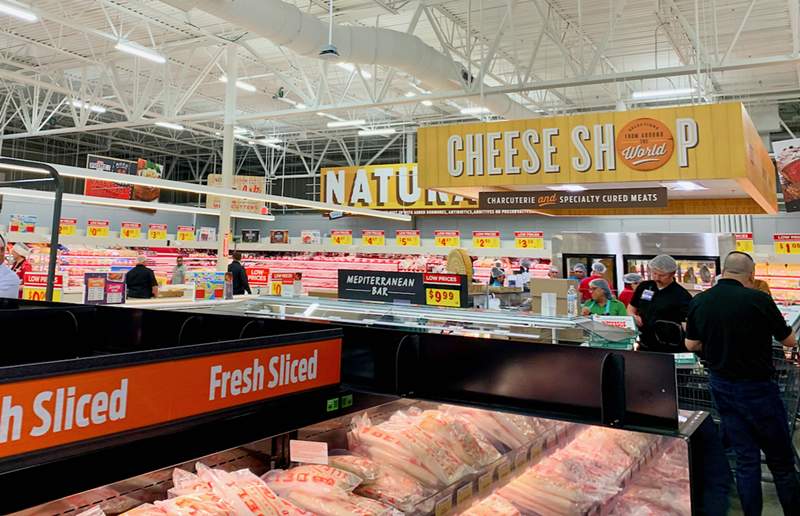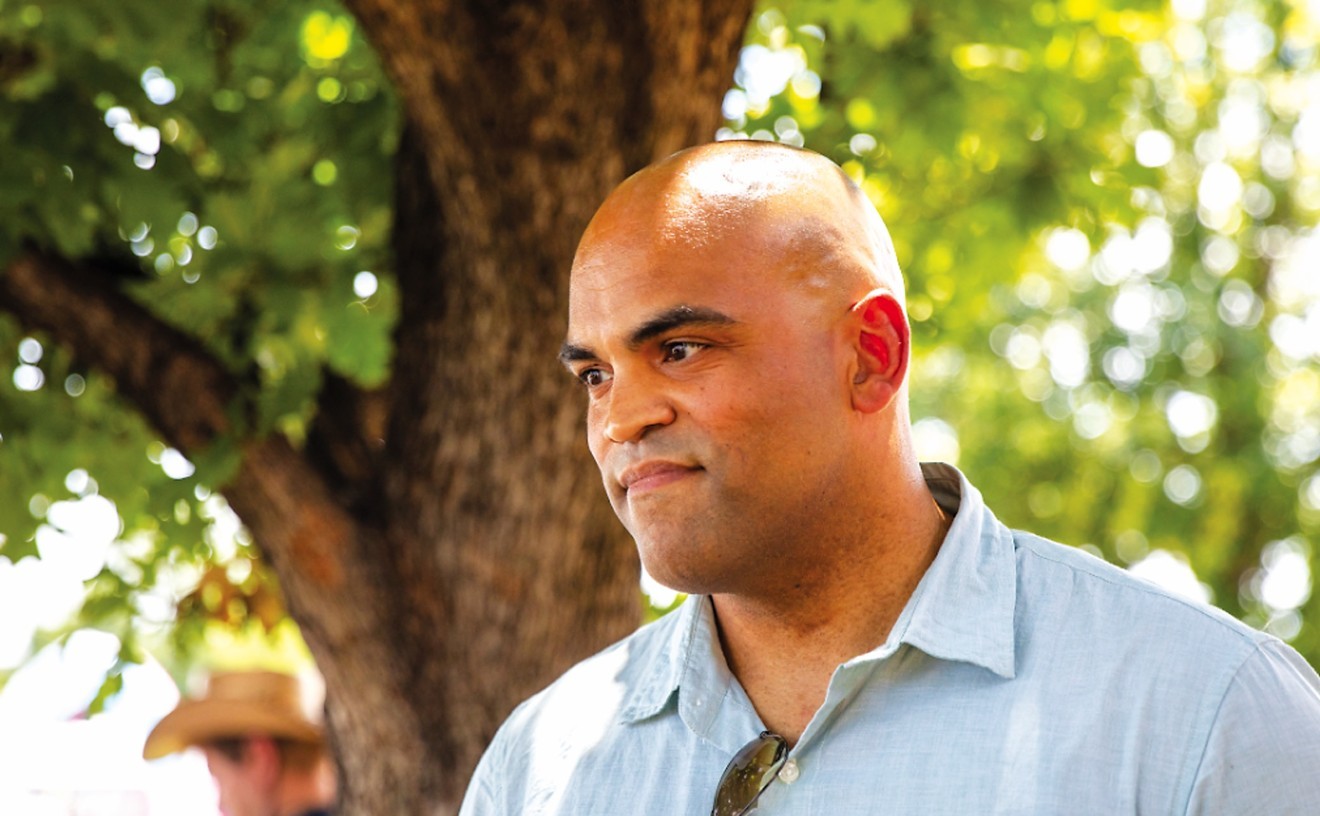“Right inside the door of that store, maybe 10 feet inside, was a salad bar,” she said. “It was beautiful – anything you could think of to make your own salad.”
She’d been shopping there for years and she’d sometimes help herself to the salad bar. “And just one day in September [2014], I just froze when I walked in the front door because it suddenly, after all those years, struck me that there was nothing like that south of Interstate 30 in the city of Dallas. Nothing.”
She took photos of the salad bar and posted it on social media. Sanders said she got nearly 100 responses in an hour from people just like her who had to travel far from their communities for fresh, healthy food.
“It indicated that there was a lot of frustration, not just mine,” Sanders said. She held a community meeting about it with people who shared stories similar to hers. As a result, Sanders started a nonprofit called Feed Oak Cliff. “Our goal was to recruit mainstream, quality grocery stores to this area,” Sanders explained. She said she naively thought these grocers just didn’t know people were living in food deserts.
“Well, silly damn me,” she added.
She learned that bringing healthy options to the city’s food deserts was nowhere near simple. A bill filed this week by state Rep. Shawn Thierry, a Houston Democrat, could make it a little simpler.
The city of Dallas has tried some ideas to bring hope to food deserts. It tried subsidizing its own grocery store in southern Dallas. That store, Save U More Grocery, eventually closed. The city has also considered regulations to space out dollar and convenience stores in Dallas, thinking that their abundance is keeping grocery stores from moving in. But the food deserts still exist.
Grocery store chains often told Sanders’ organization that there weren’t enough customers in these areas, and the ones who were there didn’t have enough disposable income. They would also cite crime rates.
In January, members of the City Council’s Economic Development Committee discussed the reasons they had so much trouble bringing the stores to Dallas’ underserved communities. At the meeting, Gary Huddleston, a consultant for the Texas Retailers Association, talked about some of the issues. A lot of it though comes down to profitability."Access to nutritious food should not be determined by a person's Zip Code.” – State Rep. Shawn Thierry
tweet this
“The bottom line is there’s got to be some thought that at some point the store is going to be profitable,” Huddleston told the committee. “We want to serve the community, but it’s still got to make a profit.”
Huddleston advocated for different grocery store models that may be cheaper to operate, as well as lowering or waiving some of the required fees so grocers could save money. From Sanders' understanding, the waived fees would apply across the board and do nothing to incentivize stores to open in food deserts. Thierry’s House Bill 1118, however, does offer such an incentive.
The bill, filed this week, would offer tax credits to grocery stores that open in Texas food deserts. If passed, it will take effect Jan. 1, 2024.
Grocery stores, or what the bill calls healthy corner stores, would be eligible for the tax credits if they operate in a food desert for at least a year. The bill defines food deserts as low-income or high-poverty areas with limited access to healthy food retailers.
Under the bill, grocery stores would need to reserve 66% of their space for selling food products. Half of that would be reserved for non-prepared foods and another 30% of that retail food space would be saved for perishable foods, including dairy products, fresh produce, fresh meats, poultry and fish, and frozen foods.
The stores would also be required to accept payments from the Special Supplemental Nutrition Program for Women, Children and Infants (WIC). If they do all this for at least a year, the stores could get 5% tax credit for what they spent to operate in that year.
In an emailed statement, Thierry said, “Texas has the largest ‘grocery gap’ in the nation, which means that our state has the lowest number of supermarkets per capita of any state.” A number of communities in her district are affected."I’m glad something is being done." – Anga Sanders, Feed Oak Cliff
tweet this
“These ‘grocery gaps’ pose significant hardships as people have to travel further simply to find a grocery store and those without transportation often end up having to purchase unhealthy, processed food on a daily basis from corner stores,” Thierry said. “As a result of poor nutrition, children are at a higher risk of obesity and adults are more likely to develop heart disease, obesity, and other diet-related diseases. Access to nutritious food should not be determined by a person's ZIP code.”
She said these gaps exist because retailers have stuck to building in more affluent neighborhoods and communities. “This disparity needs to be corrected because a lack of access to fresh produce and healthy foods leads to health risks, which increases medical costs and places additional strains on the healthcare system in our state,” Thierry said. “Therefore, everyone is impacted.”
Thierry said a 5% tax credit was chosen because it was determined that this would be enough to encourage investment without costing the state too much tax revenue. However, because of a current surplus in the state's budget, Thierry said she's in discussions to consider raising the tax credit in her bill to 10%.
Sanders is happy about the proposed incentive, but worries what kind of stores it will attract.
“I think it would be a good thing to incentivize new stores to come to food deserts if they can be stores of a certain quality,” Sanders said. “That’s the catch.”
She said some stores operating near food deserts run on a non-traditional business model. “So, you see a price on the shelf that says $3.99 … but when you get to the register it’s $4.25,” she explained. “I don’t think those should be incentivized. What I don’t know is how you differentiate that in the regulations, you know, to basically not promote more of the same substandard, poor quality stores.
“I think anything that can be done to help bring quality mainstream grocery stores to the food deserts would be helpful," she added. "I’m glad something is being done."












